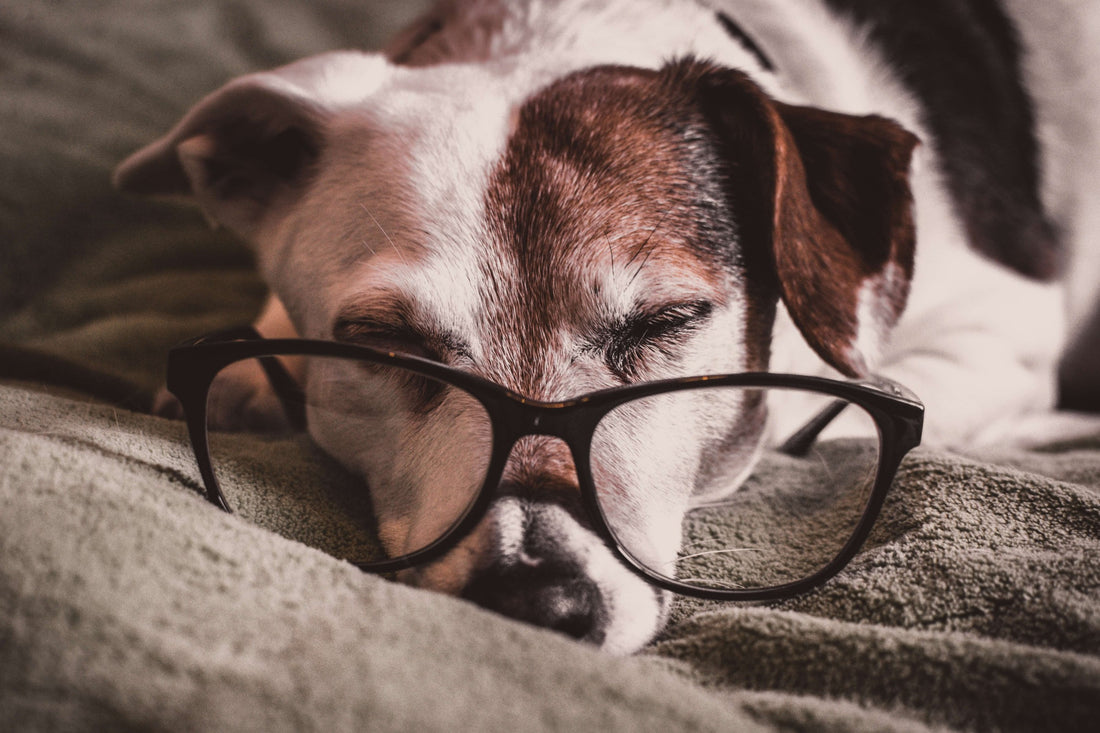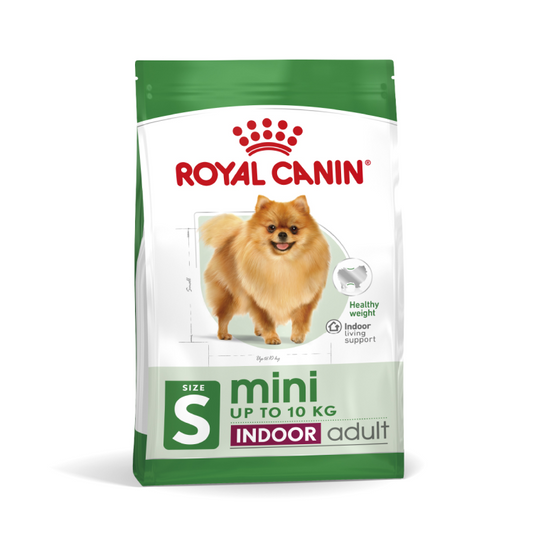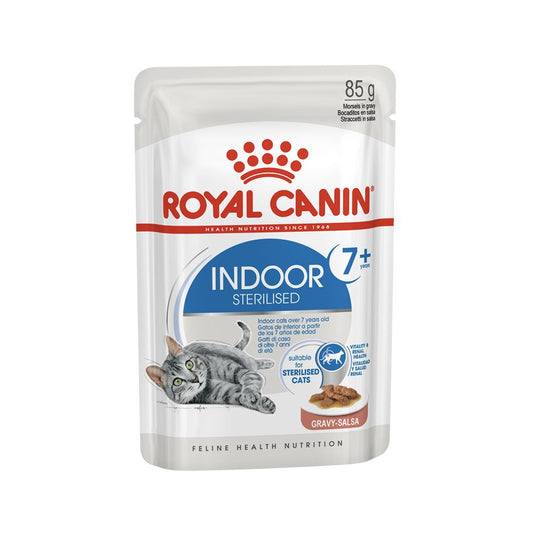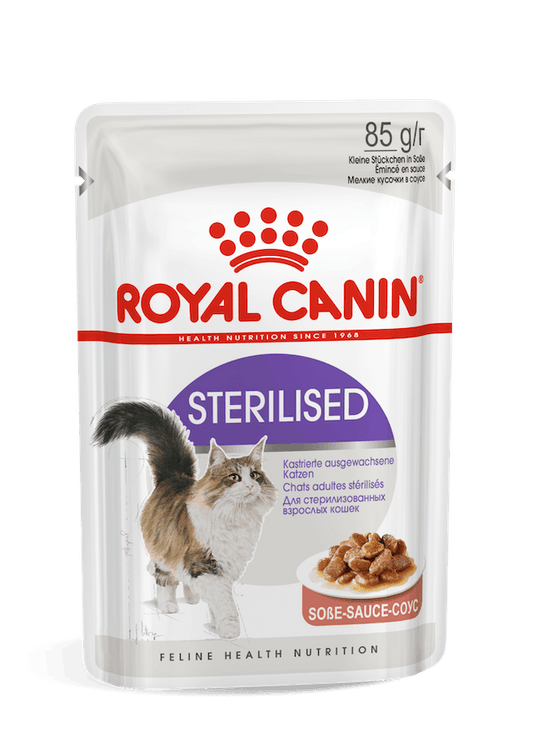As your dog gets older, you will start to notice physical and behavioural changes which should be addressed so he can continue to have a good quality of life. There are simple ways you can do this, from their exercise routine, to their diet and food supplements or medications. Age is not a reason to accept ill health, and old dogs can lead happy, active lives.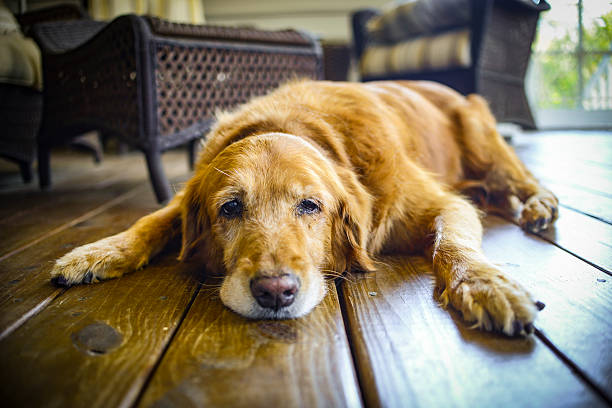
How breed and size affect aging
Not all dogs have the same life expectancy or age at the same rate; this is dependent on genetics, lifestyle, breed, and size. Smaller dogs- those under 10 kg- live for around 12 years, while larger dogs over 45kg in weight tend to live for around 7 to 8 years.
Each breed and size of dog has specific age-related problems. For example, small dogs often suffer heart issues. Large dogs often suffer joint issues. Your dog’s diet should take these differences into account and provide them with the specific combination of nutrients to support their health challenges.
Avoiding stress in your older dog
One of the most important considerations when altering your dog’s routine is to not cause them unnecessary stress. As dogs age, they can exhibit behavioural changes like incontinence, changes in sleep habits, and decreased interaction with owners. Abrupt or rapid changes to their routine can exacerbate these problems, so be sure to phase any adjustments in gradually.
Weight changes
As the dog ages he will likely become less active, lose muscle and use less energy (around 20% less than younger dogs), resulting in a tendency to gain weight. This can become a vicious circle - excess weight puts more stress on joints and may make the dog less active still. Some dogs lose weight due to poor digestion or illness (always consult your vet if your dog is losing weight).
Heart health
The efficiency of the heart’s pumping can deteriorate in older dogs. This means that he may tire more quickly on walks and may develop a soft cough. Their level of activity needs to match this reduced capability. Seek advice from your veterinary surgeon, there are diagnostic tests and medication that can improve the heart function and hence quality of life and exercise tolerance. Your vet may also recommend a diet specifically formulated to support the heart’s function, such as Royal Canin Cardiac.
Joints
Osteoarthritis and joint problems are common in aging dogs and can be made much worse if your dog is overweight. Keep the amount of daily exercise fairly constant, as unusually strenuous activity may make your dog sore the next day. Exercise your dog little and often – about 20 to 30 minutes, two to three times daily is best. Do not take your dog out on days when he is lame or stiff.
You may wish to install a ramp if your dog is struggling to climb certain stairs or into the car, or carpet if it is finding it hard to remain steady on tiled or wooden floors. Incontinence can go hand in hand with osteoarthritis- the dog may find it difficult to answer the call of nature quickly enough. Swimming is excellent exercise for older dogs that may have joint problems. A visit to your vet for a full check-up and advice on medication, joint supplements and physical therapy options is a good idea. They may recommend a diet such as Royal Canin Mobility C2P which is shown to improve mobility when fed daily. Never give your dog any of your own arthritis medicines or painkillers.
Do not forget to keep an eye on the nails of less active older dogs. They can easily become too long and grow into the pad. Get your vet to check if you are unsure.
Dental health
You may notice that your dog has unpleasant smelling breath- this can be due to dental disease. Bacterial plaque on teeth over time hardens to tartar; gums can become inflamed, infected and painful. Your vet may recommend an anaesthetic to give a full dental treatment that involves extracting infected or rotten teeth, scaling and polishing the healthy teeth. Many owners find that animals are happier and eat better after dentistry.
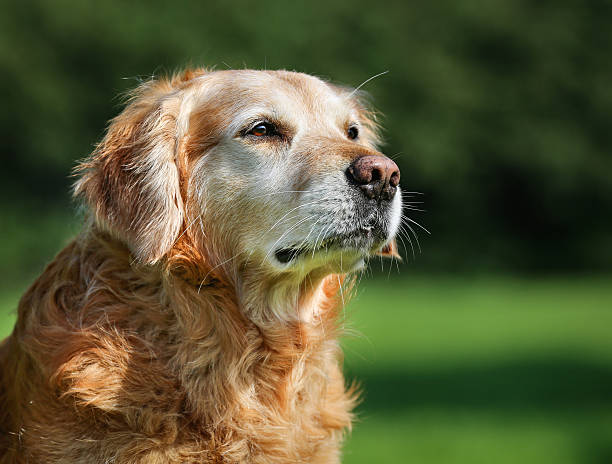
Mental health
Many old dogs can seem confused- waking at unusual times, pacing, inexplicably barking or not recognising their owner when out on walks. Incontinence can be another sign- the dog does not recognise when he needs to pee or forgets where he is supposed to. Dogs do experience brain changes like those seen in people with Alzheimer’s disease, and they have similar effects on their behaviour. There may be medications that can help so it is wise to speak with your vet. Mental stimulation, by offering novel toys or teaching new tricks, can also help an older dog feel younger.
Your aging dog’s diet
As previously discussed, there are specially formulated diets available to help manage medical conditions, but these should be used under veterinary advice. If your vet has not prescribed a diet to help a specific age associated condition, a more generic Senior diet is recommended, such as the ‘Senior’ lines within the Size Health Nutrition range from Royal Canin. Senior diets are specifically formulated to support the aging process in dogs of differing sizes. They are lower in calories and reduce the likelihood of weight gain and contain nutrients to support joint and organ function.
Key points – take your dog to the vet if he:
- Is eating less or drinking more than normal
- has smelly breath
- has lost weight
- is stiff, has a limp or is having difficulty in jumping up onto things
- has any new lumps or bumps, especially if they are rapidly getting bigger
- is getting tired more quickly when out for a walk
- has a soft cough
- has become dull, disorientated or is having trouble with balance
Do not be tempted to accept many changes associated with aging as inevitable. Aging is not an excuse for poor health and reduced well-being. With simple changes in diet and routine we can keep our pets feeling younger, longer.

